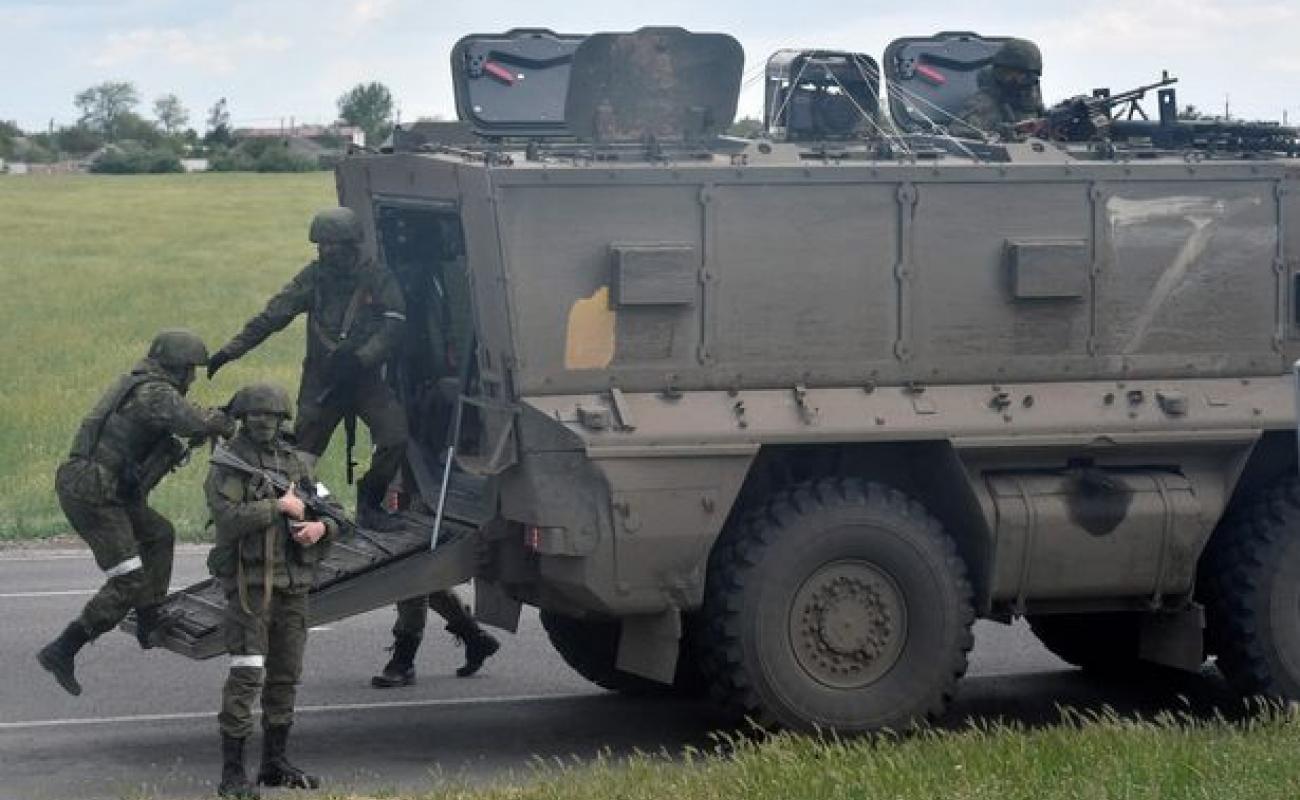"If you let go of the strings - you're done." Residents of Balaklia on torture under occupation

Fighting continues in northeastern Ukraine, where the Armed Forces of Ukraine have forced Russian troops to withdraw. However, the Ukrainian army has already regained control over large areas of the Kharkiv region, whose residents have spent several months under occupation.
But the sense of relief in the newly liberated areas is mixed with sadness.
The locals tell how they witnessed the tortures and murders that took place during the Russian occupation.
Artem, a resident of the town of Balaklia in the Kharkiv region, told the BBC that the Russians held him captive for more than 40 days and tortured him with electric shocks.
Balaklija was liberated on September 8, after more than half a year of occupation by the Russian army.
The most terrible things took place in the local police building, where Russian troops were stationed. Artem says he heard other prisoners screaming in pain and terror from nearby cells.
At the same time, according to him, the Russians made sure that the screams were clearly heard by others, as they turned off the loud ventilation system in the building.
"They turned it off so everyone could hear people screaming when they were being electrocuted," says Artem. "They did that to some prisoners every other day. Even the women were tortured."
Artem also experienced electric shock torture - but only once.
"I was forced to take two strings in my hands," he said. "There was an electric generator there. The faster it turned, the higher the voltage. They said, 'If you let go of the wires - you're done.' Then they started asking questions. They said I was lying - and the generator was turning faster, so the voltage was increasing".
As Artem said, he was detained after the Russians found a photo of his brother - employed in the Armed Forces - in a military uniform. Another resident of Balaklia, according to Artem, was detained for 25 days only because a Ukrainian flag was found in his house.
A local school principal named Tatiana, who spent three days in the police station, says she heard screams from other cells.
On the wall of one of these cells, we found the text of the prayer "Our Father" and the number of days spent in prison. According to Ukrainian police, the occupying authorities held up to eight people in cells designed for two.
According to the police, during the six-month occupation, people tried not to approach the building again, so that the Russian army would not capture them.
"Why did he kill my son?"
Near the city center, at the end of the street, are the graves of those who were hastily buried by their neighbors. A simple wooden cross stands on the site of one of them, where taxi driver Peter Šepel was buried. Next to Peter is his passenger, whose identity has not yet been determined.
The police began to exhume their bodies, and as the bodies of the dead were placed in sacks, the smell of death could be felt in the air. According to local authorities, both dead men were killed near a Russian checkpoint literally a day before the liberation of the city.
Valentina, the mother of the deceased taxi driver, watched the exhumation.
"I want to ask Putin why he shot my son?" he shouts. "Why? Who asked him to come here with such a terrible weapon? He didn't just kill our children - he also killed us, their mothers. Mothers of the world: stand up against this killer!"
On the way to Balaklia, we saw military equipment marked with the letter Z. Apparently, the Russians left it during their retreat.
In the nearest village, we were shown the building of the local school, which was badly damaged during hostilities. According to representatives of the local authorities, it was destroyed immediately before the expulsion of the Russians.
Standing on the ruins, the head of the Kharkiv region, Oleg Sinegubov, called the restoration of water supply to the region's population centers the main task - although there are fears that pipelines and power lines could be mined.
When asked if he thought Russian troops could return, Sinegubov replied: "We are at war, so there is always such a danger!"
In the center of Balaklia, where the Ukrainian flag is flying again, several dozen local residents lined up next to food trucks.
There are many old people here who look haggard. But they are happy to see each other again - and hug each other for the first time since the beginning of the occupation.
